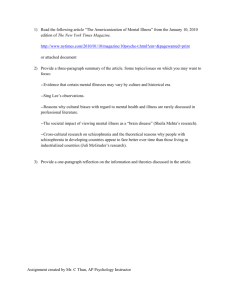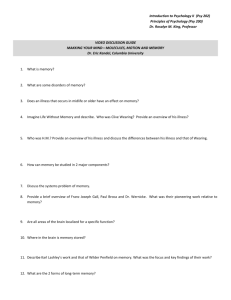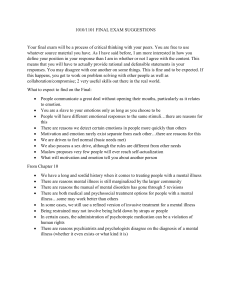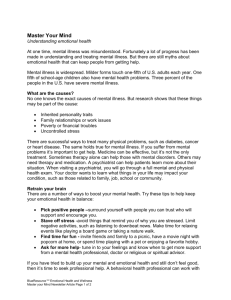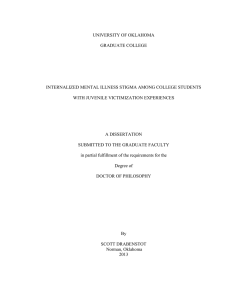Concepts of Normality Quiz - BPHE-Health-Education
advertisement
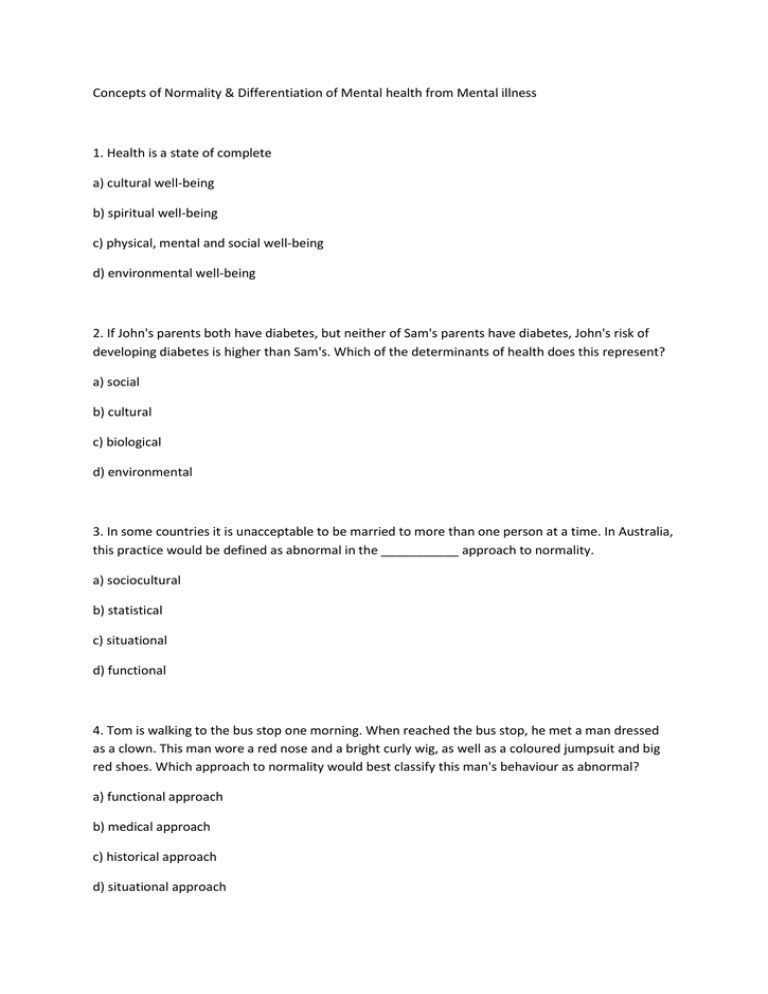
Concepts of Normality & Differentiation of Mental health from Mental illness 1. Health is a state of complete a) cultural well-being b) spiritual well-being c) physical, mental and social well-being d) environmental well-being 2. If John's parents both have diabetes, but neither of Sam's parents have diabetes, John's risk of developing diabetes is higher than Sam's. Which of the determinants of health does this represent? a) social b) cultural c) biological d) environmental 3. In some countries it is unacceptable to be married to more than one person at a time. In Australia, this practice would be defined as abnormal in the ___________ approach to normality. a) sociocultural b) statistical c) situational d) functional 4. Tom is walking to the bus stop one morning. When reached the bus stop, he met a man dressed as a clown. This man wore a red nose and a bright curly wig, as well as a coloured jumpsuit and big red shoes. Which approach to normality would best classify this man's behaviour as abnormal? a) functional approach b) medical approach c) historical approach d) situational approach 5. Which of the following is a psychological factor that could contribute to the development and persistence of physical or mental illness? a) cultural traditions b) how we perceive our internal and external environment c) an overcrowded environment d) the inheritance of particular genes 6. In relation to mental illness, 'atypical' means that an individual a) is distressed and extremely upset b) behaves in a way that is not normal for them c) is unable to do the kinds of things they normally do on a daily basis d) has experienced a breakdown in cognitive, emotional and / or behavioural functioning 7. Physical or mental illness is best described as a) a personal interpretation that something is wrong with the body or mind b) a diagnosable impairment to physiological or psychological functioning c) a breakdown of physiological or psychological functioning d) a disorder listed in the DSM IV-TR or ICD-10 8. Thoughts, feelings or behaviour are considered ______________ if they interfere with a person's ability to carry out their usual activities in an effective way. a) distressing b) deviant c) dysfunctional d) different 9. Which of the following is not a biological factor that could contribute to the development and / or persistence of physical or mental illness? a) genetic inheritance b) a neurochemical imbalance c) immune system response d) health education 10. Abnormality, from a mental health perspective, is dependent on a) the social and cultural context of the individual and the level of distress and impairment this causes for the individual and / or his or her close social network b) the social context of the individual and the level of distress and impairment this causes for the individual and / or his or her close social network. c) the cultural context of the individual and the level of distress and impairment this causes for the individual and / or his or her close social network d) None of the above 11. Which of the following statements is correct? a) Mental health and mental illness are the same thing b) Mental illness is the only factor that impacts on a person's mental health c) Mental illness is the absence of mental health d) Many things can impact on mental health, mental illness being one of them 12. Mental illness a) has only been described in very recent times b) is caused by an overheating of the brain or blood c) have been found described in the written record of many ancient civilisations d) has only been approached systematically in the last 50 years. ----------Key---------- 1. (c) 2. (c) 3. (a) 4. (d) 5. (b) 6. (b) 7. (a) 8. (c) 9. (d) 10. (a) 11. (d) 12. (c)

